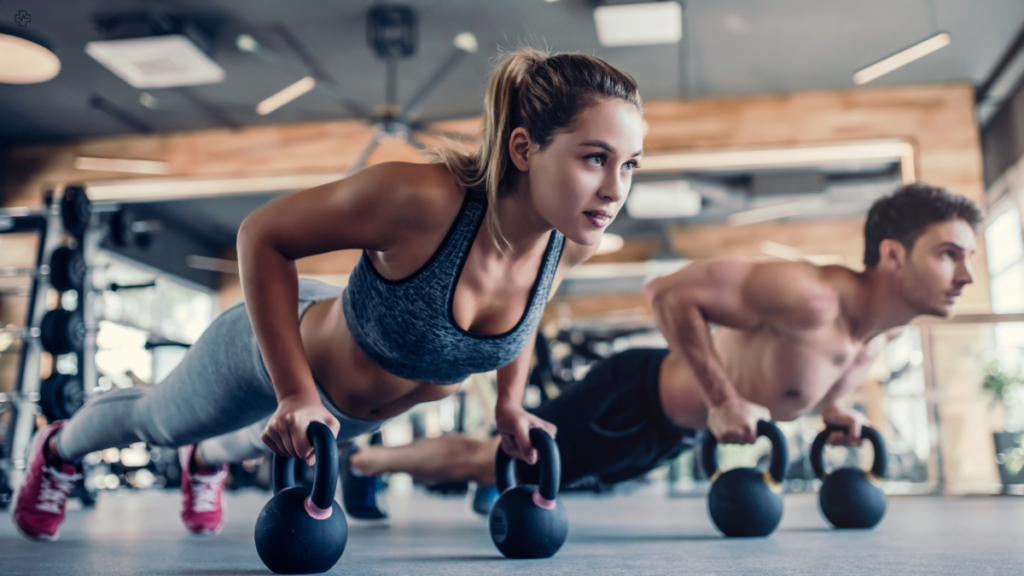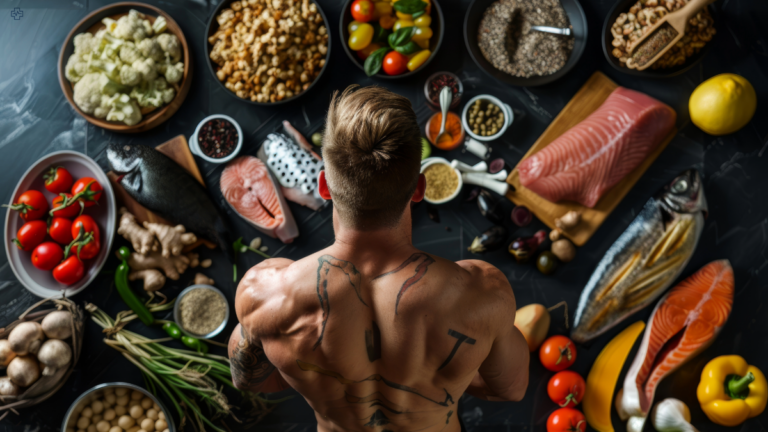Nutritional debates often ignite fierce discussions among fitness enthusiasts and experts. It is almost like a cult. Particularly when it comes to the role of macronutrients in enhancing physical performance. Similar to the long-standing debates around low-carb versus high-carb diets, or the timing of nutrient intake around workouts, high-protein diets have been scrutinised for their effects on muscle mass, strength, and overall fitness.
A recent study published in Frontiers in Nutrition sheds light on the impact of high-protein diets in conjunction with different training modalities. Specifically resistance training (RT) and concurrent training (CT), on young males who are already resistance-trained. The study provides insights into how dietary protein, alongside specific exercise regimens, influences lean mass, muscle strength, endurance, and power.
Protein Intake & Muscle Mass Fundamental Link

High-protein diets have long been advocated in the realm of sports nutrition for their role in muscle protein synthesis, which is essential for muscle growth and repair. The study likely examines whether protein intakes above the general recommendation of 0.8 grams per kilogram of body weight per day. Potentially looking at levels around 1.6 grams per kilogram per day or even higher can further enhance the effects of resistance training on muscle mass and strength.
By providing an increased supply of amino acids, which are the building blocks of muscle, higher protein intake is theorised to support greater muscle hypertrophy and recovery, especially in individuals engaged in regular and intense physical training.
Top 10 Foods with the Highest Protein
| Rank | Food | Protein per 100g |
|---|---|---|
| 1 | Soybeans | 36g |
| 2 | Lentils | 26g |
| 3 | Cottage cheese | 25g |
| 4 | Greek yogurt | 23g |
| 5 | Chicken breast | 23g |
| 6 | Tuna | 23g |
| 7 | Salmon | 22g |
| 8 | Eggs | 12g |
| 9 | Almonds | 21g |
| 10 | Beef | 20g |
Resistance vs. Concurrent Training
The study explores two distinct training modalities: Resistance Training (RT) and Concurrent Training (CT). Resistance Training focuses exclusively on strength exercises, such as weightlifting, which are specifically designed to increase muscle mass and strength through targeted muscle overload. This form of training is well-documented for its effectiveness in promoting muscle hypertrophy and enhancing strength metrics, such as one-repetition maximum (1RM), a common measure of maximal strength.
Concurrent Training, on the other hand, combines resistance exercises with endurance activities, such as running or cycling. While CT offers the benefit of improving overall fitness, including cardiovascular health and endurance, it is often associated with the so-called “interference effect.” This phenomenon occurs because the physiological adaptations required for endurance (e.g., improved aerobic capacity) can conflict with those needed for muscle growth, potentially leading to less pronounced increases in muscle mass compared to RT alone.
The study aims to determine whether high-protein intake can mitigate this interference effect and support muscle growth and strength even when endurance exercises are included.
Assessing Lean Mass, Strength, Endurance & Power

A key focus of the study is on lean body mass changes, as increases in lean mass, rather than just overall weight gain, are critical for evaluating the effectiveness of protein intake and exercise regimens. By measuring lean mass, the researchers aim to differentiate muscle gains from other body weight changes, such as fat gain. Muscle strength, assessed through tests like the one-repetition maximum for various exercises, provides a clear indicator of functional improvements that go beyond aesthetic muscle growth.
Additionally, the study examines endurance and power, which are important components of fitness that extend beyond raw strength. Endurance might be evaluated through metrics like the duration of sustained physical activity or performance in endurance-based tasks, while power could be measured by performance in activities requiring explosive strength, such as vertical jumps or sprints. By including these measures, the study seeks to paint a comprehensive picture of how high-protein diets interact with different training modalities to influence overall physical performance.
Key Findings and Practical Implications
While the specific results of the study are not detailed here, the general aims of such research are to determine whether higher protein intake leads to significantly better outcomes in terms of muscle mass, strength, endurance, or power. The findings are expected to provide guidance on whether there is an optimal level of protein intake that maximises these outcomes when combined with different training regimes.
Additionally, the study may explore the impact of protein timing, such as consuming protein immediately before or after workouts, on enhancing physical adaptations. Understanding the nuances of these variables can help athletes and fitness enthusiasts tailor their nutrition and training strategies to optimise performance.
Future Research Directions
The study from Frontiers in Nutrition is part of a broader effort to refine our understanding of how dietary and training variables interact to affect physical performance. Similar research has been conducted on the role of protein timing, with studies suggesting that consuming protein around workouts can enhance muscle protein synthesis and recovery. Other studies have explored the differences in protein needs among various populations, such as older adults versus younger athletes, highlighting that the optimal protein intake can vary based on age, training status, and individual goals.
This particular study involved contributions from a diverse team of researchers, including Aaron Petruzzella, Marine Bruand, and Albert Santamaria-Martínez, who brought together expertise in nutrition, exercise physiology, and biochemistry. Their collaborative approach underscores the complexity of studying the interaction between diet and exercise, as well as the importance of a multidisciplinary perspective in uncovering the most effective strategies for enhancing physical performance.
As the scientific community continues to investigate the role of protein and other nutrients in athletic performance, future research will likely focus on personalising dietary recommendations based on individual genetic profiles and training regimens. Studies exploring the interplay between macronutrient intake, exercise type, and timing are essential for developing more precise and effective nutritional guidelines. And they are certain to keep evolving.

